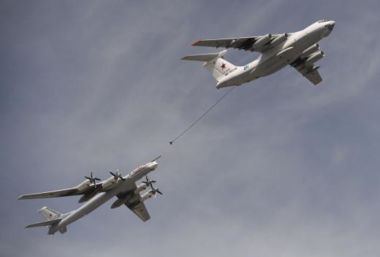US jets intercept Russian bombers capable of carrying nukes off US airspace on July 4

Two pairs of Russian Tupolev Tu-95 bombers, which are capable of carrying nuclear weapons, were stopped by the US Air Force from entering America's airspace on US Independence Day.
The move was seen by the US military as a challenge to the US government as tensions are again heightening between the two Cold War rivals.
The bombers approached the US West Coast, causing the Air Force to scurry into intercepting them before they breached US airspace, wrote Business Insider.
The first incident happened at 10:30 a.m. ET off Alaska's coast, when the North American Aerospace Defence Command spotted the Russian planes. Two F-22 jets immediately intercepted them. A similar incident happened half an hour later, this time off the coast of California.
"It's becoming very obvious that [Russian President Vladimir] Putin is testing [US President Barack] Obama and his national security team," said retired Air Force Lt. Gen. Thomas McInerney, who previously headed the North American Aerospace Defense Command.
It was not confirmed if the Russian planes were indeed armed with nuclear weapons.
The incidents bring to mind the Cold War.
"These long-range aviation excursions are duplicating exercises I experienced during the height of the Cold War when I commanded the Alaska NORAD region," said McInerney.
During the time that the Russian bombers were approaching US airspace, Putin was calling Obama on the phone and wishing him a happy fourth of July, Fox News said.
The flight of the Russian bombers was assessed as another training activity, according to State Department spokesperson John Kirby.
Russia has flown increasingly combative air missions over Europe and the Pacific since the crisis in Ukraine started. Russian bombers were recently intercepted over Guam and off the coasts of California and Alaska.
Russia and the West have up to 40 military encounters last year, of which three could have led to deaths or military confrontation, according to the European Leadership Network.











